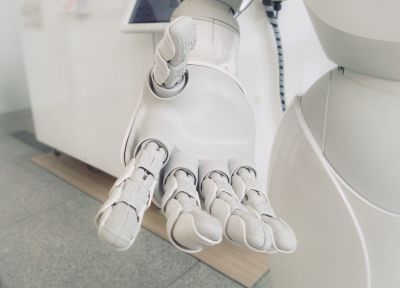The 'godfather of AI' leaves Google: Who will rule the 'coming gods'?

Geoffrey Hinton, director of AI research for Google, has resigned from the company because of concerns — not about Google, but in general. He told a reporter for The New York Times that he was not leaving Google because he wanted to be free to criticize that corporation, but so that he could voice his concerns about artificial intelligence freely.
One of Hinton’s major concerns is that “it is hard to see how you can prevent the bad actors from using it for bad things.” Hinton also noted the possibility that AI systems with human-competitive intelligence can pose profound risks to society and humanity, as shown by extensive research and knowledge by top AI labs.
Though I do not have the experience and knowledge of Geoffrey Hinton, my own concerns from a theological perspective prompted me to write a book, Who Will Rule the Coming ‘gods’: The Looming Spiritual crisis of Artificial Intelligence.
There I detailed my own concerns. The biggest of these issues were embedded in a quote by the founder of a new “AI church,” Anthony Lewandowski, another former Google employee. He explained why it was appropriate to name the new project a “church”: “What is going to be created will effectively be a god … (If) there is something a billion times smarter that the smartest human, what else are you going to call it?”
My major concern then, and even more, now, is that in many churches the focus is no longer on the transcendence of God, but the immediate needs of people and the way God can meet those needs.
Transcendence means that God is immaculate in His majesty and glory. Transcendence also means that we humans made in the image of God are accountable to Him for the way we lived those lives and used the gifts He bestowed upon us.
As churches and their people go more deeply into the AI age, hard questions will demand the right answers:
- Will it be the transcendence of God or the machine?
- Who will rule the “coming gods”?
- What do builders of the machines worship and regard as transcendent … who sets their values and boundaries?
- Will the new AI age bring us into a “new Eden,” or a society dominated by authoritarians who use machines to dominate and control us?
It is imperative that we get the right answers to those questions now rather than later. David Berlinski wrote a book, The Devil’s Delusion, and reflected on God’s transcendence and the accountability it infers. Berlinski told of an old Jewish man in an East European village. A Nazi soldier held his gun on the elderly man and threw him a shovel for the Jewish man to dig his own grave. The Hasidic Jew looked up at the soldier, and said, “God is watching you.”
Berlinski wrote, “What Hitler did not believe and what Stalin did not believe, and what the SS did not believe, what the Gestapo did not believe, and what the commissars and functionaries and thousands of party hacks did not believe was that God was watching over what they were doing.”
Hitler’s minions worshipped Hitler and forgot or tried to use God to sanction their crimes and gave us the most extensive acts of sheer murder in history.
What are the modern tyrants who have no sense of history or the Lord over it, giving us?
That’s the most important AI question of all.
Professor James K.A. Smith wonders how “the consensus regarding God’s transcendence left so quickly (from Western culture). Actually, any trend toward the worship of AI, whether formal or informal, shows that we are at the ultimate outcome of desecularization, which is sacralization on the immanent scale.”
John Calvin understood well the human need for transcendence. “Man’s nature is a perpetual factory of idols,” he wrote. Man begets an idol and the hand gives it birth.
Juval Harari, centuries later, would see it in the same way, as he writes that “new technologies kill old gods and give birth to new ones.”
And this has happened again and again, across history, as it seems to be doing in our present age. Harari writes about “techno-religion” emerging now: “Just as socialism took over the world by promising salvation through steam, so in the coming decades new techno religions are likely to take over the world by promising salvation through algorithms and machines”
Eric Ortlund, in his book, Idolatry and the AI Singularity, says:
“The ancient idolater used half a piece of wood to cook his food and then bowed low before the statue he carved from the other half; the modern idolater uses his laptop to pay his bills, read the news…and possibly create a god.”
We haven’t come so far after all.
Wallace B. Henley is a former pastor, daily newspaper editor, White House and Congressional aide. He served 18 years as a teaching pastor at Houston's Second Baptist Church. Henley is author or co-author of more than 25 books, including God and Churchill, co-authored with Sir Winston Churchill's great grandson, Jonathan Sandys. Henley's latest book is Who will rule the coming 'gods'? The looming spiritual crisis of artificial intelligence.




























